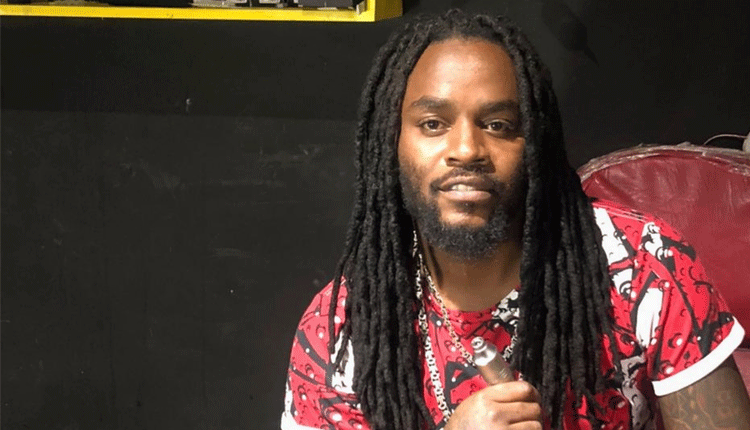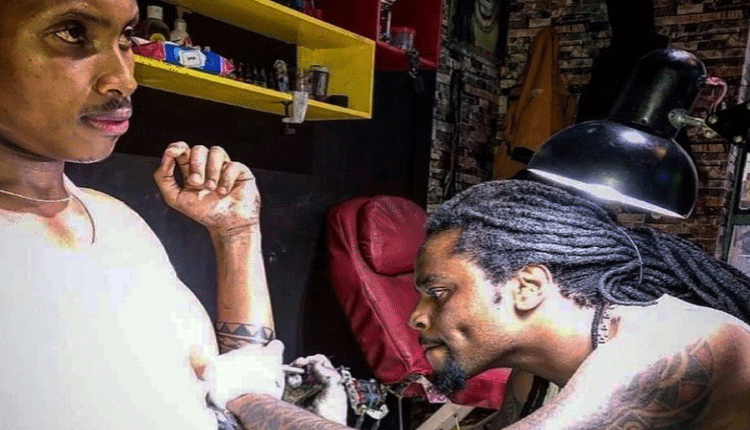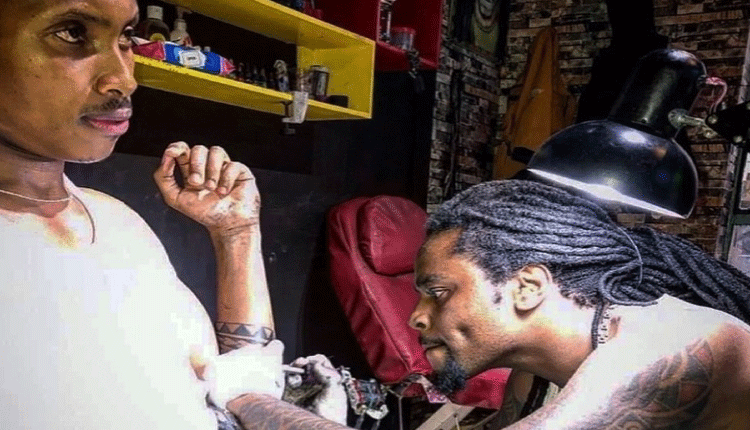Meet inkmaster Peter Maina with passion for tattoos

While other trend-inspired businesses may come and go, the tattoo industry has proven over time that it is resilient.
Though deemed a taboo and frowned upon, it has slowly emerged as popular culture and has been embraced by millennials making it a lucrative business enterprise.
Peter Maina Waithaka has made this his bread and butter and has devoted his entire life to this profession.
After completing his studies in graphic design at Shang Tao, a college in Nairobi in 2005, he began selling second hand clothes as he had no cash to buy the machines required to start a graphics design business.
It is while doing this business that his passion to start a tattoo business began.
“When I drew my first tattoo, I had the urge to do more. I saved Sh20,000 from the proceeds of my mitumba business and my mother gave me an extra Sh7,000, which was enough to import my first machine,” he recalls.
For a whole year, he went on YouTube and learnt how to use the equipment and learnt about the art from various artists.


In 2013, Maina started going from salon to salon with his machine and tattooing anyone who wanted it.
The tattoos would go for Sh800 or Sh1,500 and after two years, he had raised enough money to rent his own shop.
“I always wanted to have a shop in the CBD, in a place where everyone passes by.
I got a stall where I was paying rent for Sh15,000 next to Khoja and joined hands with one of my late friends in 2018 and we got a bigger place where we paid Sh35,000,” continues Maina.
He worked from there for a while before moving to his own shop along Ronald Ngala Street, where he currently based.
Tattoos fall into three broad categories; decorative, symbolic and pictorial. Just like any art, most tattoo artists spend years becoming better in their skill.
Maina takes approximately 20 minutes to draw a tattoo depending on the size, with a minimum charge of Sh1,500 and for a pictorial costs Sh2,000 onwards depending on size and details.
“My difference with others is that I customise my tattoos. For instance, if a client wants a rose and they come with their own rose flower design, I know how I can customise it to look better and unique.
One has to be creative and artistic in this industry to attract clients and don’t look like others,” explains Maina.
Because they are naturally painful as it involves pricking the skin with pins and needles, Maina ensures he has the best machines to do the work.
He is also organised , uses clean needles and keeps his studio clean to prevent infections.
Like a hospital
“Cleanliness too is the most important thing in this business. A tattoo studio is like a hospital because you are dealing with people’s skins and you are piercing them as well.
You need new needles and each tattoo parlour needs to be clean. You also need to be organised and clients need to find you in gloves, and everything you need for the work,” he says.
He notes that one needs courage while working in this business, especially when dealing with clients.
“Some people come to the parlour and are harsh and rude so you need to have the courage to handle the situation.
The client is always right so you have to be understanding to the different temperaments and backgrounds that you meet,” he explains.
It is also difficult sometimes, dealing with first time clients.
“There are also clients who want tattoos in crazy places and you have to draw them.
Starting out is the challenging bit, but you get used to it as you practise more,” he says.
One mistake tattoo artists make is being rude to clients and not ensuring that their work stations are clean and organised,” he explains.
Though Covid-19 affected many business including his, Maina began house calls for clients who wanted big and detailed designs.
One of the challenges he faces is that people with tattoos are judged a lot. Such judgment resulted in the loss of his friend and business partner, who was shot as he was mistaken to be a robber.
“For instance, when you get into a matatu, the person sitting next to you might leave the seat simply because they have seen you with dreadlocks and a tattoo.
We have people debating about whether tattoos are in the Bible or not, yet when you die, we are told that we shall have new bodies. So why do people argue about tattoos?
This is just a business and an art just like any other. The same way you would like your art hanged somewhere is the same way some would like their art on their body,” he adds.
Although it is a lucrative business, Maina observes that another thing destroying people in this industry is women and alcoholism.
“With this trait, no one can trust you to draw their tattoo especially when you have a habit of coming to work smelling like liquor.
If you know you are going to work, have fun after work not when you are going there. Just be focused,” he explains.
He, also urges young people to get in the business as a passion not just for money.
“You will find so many people joining the business for money without enjoying what they are doing.
You will find someone who just wants to draw the tattoo, get the money and leave you because his mind is just on the money.
This art will pay you as long as you are focused. Do it as a passion not for money,” he says in conclusion.












